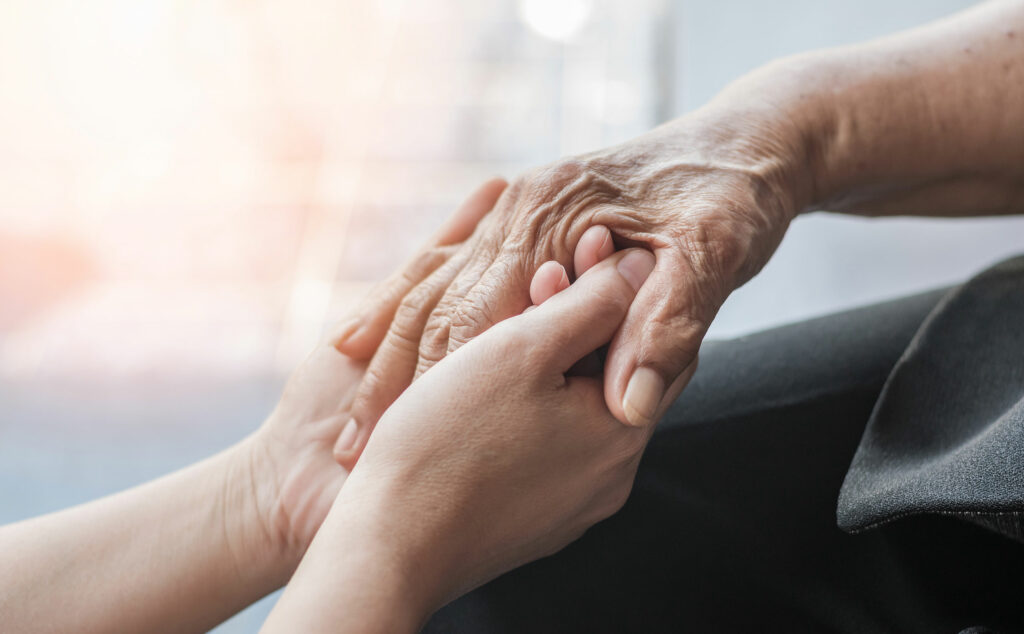Although Parkinson’s is not hereditary, it is estimated that genetic and environmental factors may cause this disease.
Parkinson’s, causes, diagnosis, and treatment
Parkinson’s disease is a degenerative-progressive disease of the nervous system that affects movement. Those people who suffer from this disease see their functionality altered when performing daily activities with greater difficulty, even becoming dependent on other people.
Parkinson’s disease has very diverse causes.
Is Parkinson’s hereditary?
The exact cause of this disease has not been found, but it is said that some neurons, also known as brain nerve cells, break down or die progressively.
Several factors seem to influence the causes of Parkinson’s:
- Genes. Specific mutations that may be part of the causes of Parkinson’s disease have been detected, although they are rare. Certain genetic variations can increase the risk.
- Environmental triggers. Some toxins or environmental factors can increase the risk of disease.
- Lewy body presence. Lewy bodies are masses of specific substances within neurons. Researchers believe these bodies contain an important clue to Parkinson’s disease.
- Alpha-synuclein. There are many substances within Lewy bodies, research has detected that an important substance is a-synuclein (alpha-synuclein), currently, this substance is an important focus in this condition’s investigations.
In addition to the above, different factors are considered Parkinson’s disease causes.
- Age. The disease normally begins in the middle or advanced stages of life, manifesting from the age of 60 onwards, although there are cases in young adults.
- Genetic predisposition. Although the disease is not hereditary, having a close relative with Parkinson’s increases the chances of developing the disease.
- Sex. Men are more prone to developing Parkinson’s, although women are not exempt.
- Exposure to toxins. It has been detected that constant exposure to herbicides or pesticides can increase the risk of suffering from the disease.
Parkinson’s symptoms
The symptoms are divided into motor, where the disease manifests slowly with rigidity, tremor, balance, and posture disturbances, not all of which are present in all patients, but they do increase in intensity.
Non-motor symptoms are constipation, smell and taste problems, sleep disturbances such as insomnia, and sleep apnea, a very peculiar stage is when patients act out their dreams, they move. These symptoms may precede motor symptoms by up to 20 years.
Diagnosis and treatment
The Parkinson’s diagnosis is made when the patient already shows motor symptoms, there is no way to do it before since for a doctor the easiest thing is to identify the tremor and fine coordination problems for writing or slow walking (the patient drags their feet).
However, a great effort must be made to make an early diagnosis, so that the patient does not reach premature disability and have timely treatment.
This depends on the recognition of the symptoms by the family, the patient, or the first contact doctors.
Dr. Rubén Martínez Hernández, neurologist and head of the Parkinson’s and Movement Disorders Clinic at ABC Medical Center comments that “the condition is progressive and has no cure. Regarding treatment, first of all, there must be physical rehabilitation, being accompanied, socializing, and having access to a multidisciplinary team specialized in Parkinson’s, such as the one that the ABC Medical Center Parkinson’s Clinic has”.
He adds that pharmacological treatment consists of supplementing the dopamine function. In advanced diseases, it is a matter of counteracting motor complications through therapies with infusion pumps.
Surgery for Parkinson’s
Dr. Martínez explains that there are several types of surgery: entering the brain into structures that are in charge of movement coordination and are affected by the decrease in neurotransmitters which explains the symptoms, achieving a change that modulates its communication, improving the symptoms.
“The most successful so far is deep brain stimulation or neurostimulation, where a brain pacemaker is placed that improves communication between brain structures affected by a lack of dopamine”.
This type of surgery requires a multidisciplinary team and assessment to ensure that there is no problem to perform it, with which the patient can reduce symptoms and have a better quality of life.
The ABC Medical Center Parkinson’s Clinic has neurologists, neurosurgeons, neuropsychologists, neuropsychiatrists, and internal medicine, as well as a committee and an experienced group for decision-making and regulations for the best quality of patient care.
“It must be recognized,” the expert mentions, “that this disease causes the patient to lose autonomy, so it can deteriorate their quality of life if adequate treatment is not available.
Incidence of Parkinson’s in Mexico
Parkinson’s disease ranks third in frequency among neurological diseases. There are 150 to 200 cases per 100,000 inhabitants per year in various parts of the world; in Mexico, 50 out of every 100,000 inhabitants may suffer from it.
At ABC Medical Center’s Neurology Center, we can provide you with specialized care. Contact us!
Fuentes:
Rubén Martínez Hernández, neurologist and chief of the Parkinson’s and Movement Disorders Clinic at the ABC Medical Center
https://centromedicoabc.com/medico/hector-ruben-martinez-hernandez/
https://centromedicoabc.com/centro-neurologico/clinica-de-parkinson/
https://www.innn.salud.gob.mx/interna/medica/padecimientos/parkinson.html
https://www.gob.mx/inapam/es/articulos/parkinson-segunda-enfermedad-neurodegenerativa-mas-frecuente-en-personas-mayores-de-50-anos
https://www.innn.salud.gob.mx/interna/medica/padecimientos/parkinson.html
https://www.mayoclinic.org/es/diseases-conditions/parkinsons-disease/symptoms-causes/syc-20376055



